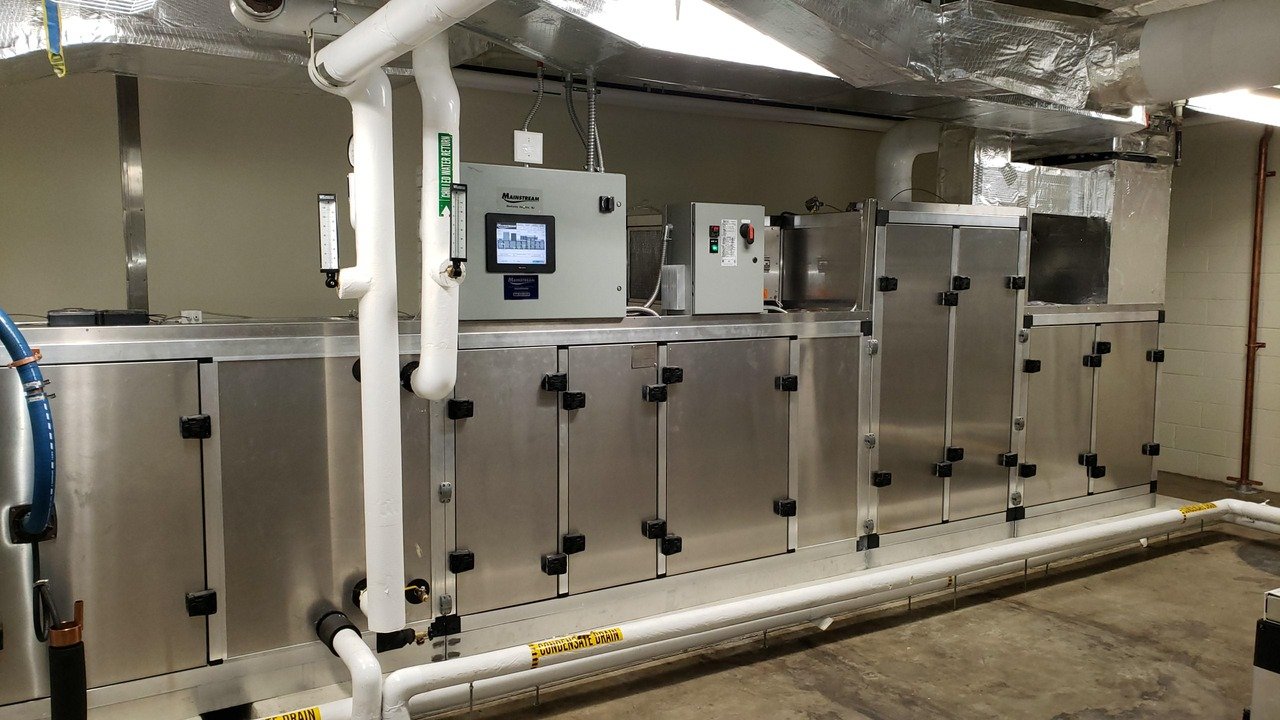
The Role of Industrial Dehumidifiers in Maintaining Optimal Manufacturing Conditions
Humidity plays a critical role in equipment quality, equipment longevity, and worker health in industries. Dehumidifiers control humidity, resolve moisture-related problems and improve industrial processes and high-quality goods. This article discusses the issues of humidity that industrial dehumidifiers manufacturers face in production plants.
Importance of Humidity Control in Manufacturing
Relative humidity control is a serious factor in several manufacturing procedures. Water being present in extreme quantities poses several issues such as corrosion, mold, product anomalies, and poor safety precautions. In this respect, high humidity also impacts raw materials, equipment, or electronics that are used in production which may lead to pricy damages and time to repair. Relative humidity is one of the most important factors that must be well managed to maintain a clean, controlled environment that enhances productivity, product quality, and compliance. Industrial dehumidifiers are different from commercial or residential dehumidifiers since they are developed specially for heavy usage in the industrial environment. These systems contribute in that they enable low humidity levels, which in the long run lead to a stable production line.
Preventing Product Defects
Manufacturers are exposed to numerous risks whenever moisture levels are not well controlled. It showed how industries such as the pharmaceutical and electronic sectors face humidity as a problem that costs them loss of money and reputation.
Pharmaceuticals
In the process of manufacturing and storage of medicines, high humidity levels increase the threat to the stability of the product quality and its shelf life. As mentioned above relative humidity reduces the effectiveness of certain compounds, also changes the flow characteristics of the powders, and affects the tablet bonding. Industrial dehumidifiers contribute to the preservation of the right dry environment to prevent the deterioration of sensitive materials and to guarantee that drugs meet safety requirements.
Electronics
Humidity in electronics production results in corrosion, short-circuiting, and subpar electronic component performance. To maintain accurate humidity levels and secure delicate parts like circuit boards and microchips, industrial dehumidifiers are essential.
Enhancing The Comfort and Safety of Employees
The high humidity conditions in manufacturing plants can affect the welfare of the people, thereby making the place uncomfortable and insecure. This can lead to the development of diseases, respiratory disorders, irritation of the skin and eyes, and even allergic reactions in the working team. Industrial dehumidifiers improve the company’s working conditions by mitigating the effects of moisture that cause health risks. In addition, by keeping appropriate levels of humidity within the workplace they reduce the risk of mold formation and too many allergens that lead to improved quality of the air the employees breathe and thus – their satisfaction. For this reason, a safe and comfortable work environment means high productivity and motivated employees.
Ensuring Regulatory Compliance
Industries are bound by strict rules concerning environmental issues. Various regulatory bodies have laid down conditions of humidity that should be met to help improve the fabrication process of products to meet the necessary standards of safety and quality. Any violation of these standards attracts penalties and product recall among other things, or in severe cases the business is shut down. Manufacturers can keep a strict check on humidity with the help of these industrial dehumidifiers to meet these regulatory standards. Through proper dehumidification, companies can be sure that they meet the requirements of the industry and do not face legal problems in the future.
Customizable Solutions for Diverse Manufacturing Needs
Industrial dehumidifiers are purchased in many sizes, production capacities, and shapes and come in various types to fit the needs of the manufacturing facility where they will be used. Ranging from small portable units for point control of moisture to large centralized systems for a whole production floor, manufacturers can choose from a variety of dehumidification options. Besides conventional refrigerant-based dehumidifiers, there are choices like desiccant dehumidifiers offered where levels of RH are needed to reach low levels. These flexible solutions enable the manufacturer to apply dehumidification to various zones within the factory and guarantee the same level of efficiency and regulation throughout the production process.
Conclusion
Industrial dehumidifiers are indispensable equipment for controlling the climate in industrial premises. When managed effectively, these systems will reduce product deterioration, and equipment wear and tear, enhance employee health, and conform to legal requirements. It has also therefore become evident that while industrial dehumidifiers may be seen as devices used for removing moisture only within manufacturing environments, they are a crucial component of a properly operating efficient, and sustainable production system. Modern developments in industrial technology even make dehumidifiers more environmentally friendly as they either consume less energy or are energy efficient. To the manufacturers who want to get the most out of their production processes and safeguard their investments, purchasing the best industrial dehumidifiers is a great way to ensure the best results.


